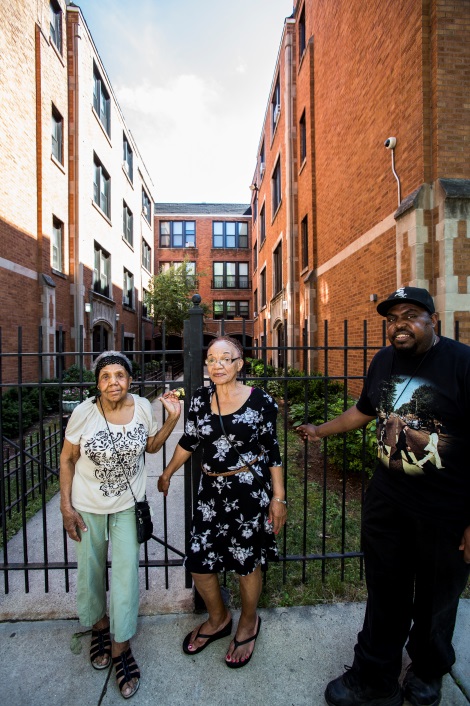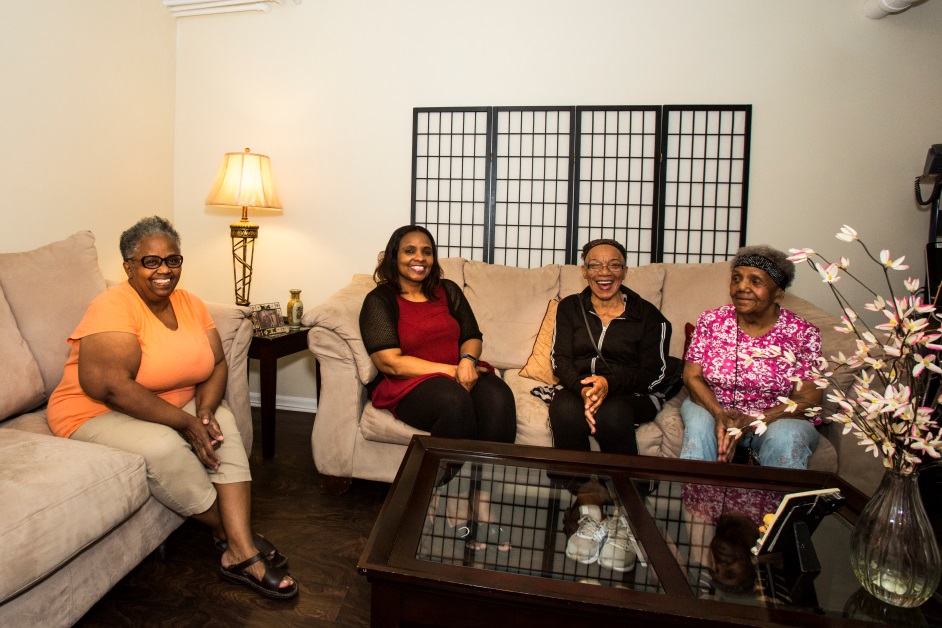Wicker Park is known for its nightlife, food scene, boutique clothing stores, beer gardens and limited available affordable housing. Zillow currently list a 2 bedroom apartment in Wicker Park for $2,985 a month. Among the droves of hipsters and incoming crowds sits Woolman-Washington Cooperative Apartments where rent is based on your family income and residents take “ownership” of the property. Woolman-Washington Cooperative Apartments is federal government subsidized housing model working to establish long-term affordability regardless of the neighborhood’s escalating property values. Most of the tenants meet HUD income guidelines.
Housing cooperatives are not generally understood by the general public and limited equity housing co-ops, in particular, are something many mortgage lenders have a hard time financing. A housing cooperative is a legal corporation where residents manage the property through an elected board of directors and established bylaws and operating agreements. Chicago Community Loan Fund is one of the few lenders that embraces limited equity housing cooperatives in the Chicagoland region and supports their mission of wealth building for low- and moderate-income families by owning shares in the cooperative. Woolman-Washington Cooperative Apartments has struggled to secure financing for a number of projects to improve the condition of their property since its inception in 1982 until they met CCLF.
Woolman-Washington (at that time, Pierce North Apartments) was targeted for closure in the early 1980s because Wicker Park was a “tough” neighborhood then and the local neighborhood association was interested in removing families they deemed contributing to problem. During that time two multi-family unit buildings across the street from Woolman-Washington were vacated completely as part of the larger community development strategy of the Wicker Park Association. The removal of tenants from multi-families property in Wicker Park was quickly resulting in gentrification.
 Marion Turner, was living in the Pierce North Apartments at the time and she along with the other founding members of the cooperative, organized a few of the residents with the fierce determination to stay put. They met with Midwest Friends Housing Corporation agreed to convey title to the purchaser free of charge. Midwest’s purpose was to establish a housing project which would be well-managed by the person who lives in it and would provide housing at a cooperative cost speculative profit. Midwest agreed to convey title to the purchaser free of charge. Woolman Washington Cooperative Apartments, Inc. was then organized as an Illinois not-for-profit corporation by occupant-tenants of Pierce North Apartments.
Marion Turner, was living in the Pierce North Apartments at the time and she along with the other founding members of the cooperative, organized a few of the residents with the fierce determination to stay put. They met with Midwest Friends Housing Corporation agreed to convey title to the purchaser free of charge. Midwest’s purpose was to establish a housing project which would be well-managed by the person who lives in it and would provide housing at a cooperative cost speculative profit. Midwest agreed to convey title to the purchaser free of charge. Woolman Washington Cooperative Apartments, Inc. was then organized as an Illinois not-for-profit corporation by occupant-tenants of Pierce North Apartments.
Fortunately, the property was converted into a cooperative where the residents were empowered to manage the facility and hire their own staff. Marion became one of the first board members of the cooperative and the first action they took was naming the building Woolman-Washington after the antislavery pioneer, John Woolman, who helped launch the underground railroad and the first African American Mayor of Chicago, Harold Washington.
 “I like living here because it is close to everything; anything you want – transportation, the hospital, stores are all nearby. – Maryann “Grannie” Turner, original board member of Woolman-Washington Cooperative Apartments.
“I like living here because it is close to everything; anything you want – transportation, the hospital, stores are all nearby. – Maryann “Grannie” Turner, original board member of Woolman-Washington Cooperative Apartments.
Not everyone was thrilled with the formation of the cooperative. Neighboring property owners kept a peering eye on the board but began to notice a change over time. Tenants that violated the rules were removed, the roof was repaired, the lawn was well kept, a new porch was constructed, hallways were painted and the laundry room modernized. The members of the cooperative took real pride in their home and maintained it as best they could.
Today, Marion’s granddaughter, Kimberly Turner, is President of the Cooperative. She has lived at Woolman-Washington for 18 years and highly speaks about the cooperative which has 51 units with a waiting list of over 100 families. “I like living here because it gives me peace of mind. It is a family environment and I like walking out of my home knowing I am safe,” she explained. The current Board of Directors was faced with many obstacles such as deteriorating windows and two vacant units that were in such disrepair that they sat vacant for 17 years. During the HUD annual inspection, the Cooperative would get low scores because of failing windows and the Directors wanted to improve their score but needed financing to get the job done properly. That is when they reached out to Chicago Community Loan Fund for help.
CCLF provided a loan to help replace the windows and get the two units ready for occupancy. The repairs were overwhelming at times as the two units were a complete gut rehab and the floor in one of the units had to be lowered. Additionally, the windows had to meet the restrictions of the landmark status of the building. Kimberly stated, “The best thing about CCLF is that they have been patient, very patient. It took two years to repair two units that were planned to be completed in six months.” “I appreciate CCLF gave us the opportunity. They were the only ones that did.”
Within days of the completion of the work the two units they were both contracted to occupied before the close of the month. Esther Tabb had already moved in at the time this article was written. She was living in a one bedroom apartment and got guardianship of her two grandchildren. It was difficult sharing the space, but thanks to CCLF’s financing they now live in a two bedroom unit and the children have room to their own room to play.

Keyshawn, age 5, and Azeviah, age 6, Stephenson enjoying time in their bedroom remodeled with a CCLF loan.

Esther Tabb hosting Woolman-Washington Board members, Kimberly Turner and Hattie Sturghil and cooperative member Marion Turner, in her new 2-bedroom unit.
CCLF provided the board of Woolman-Washington with a loan of $600,000 to replace the exterior window and to bring two vacant apartments back online. CCLF did this as part of its commitment to the Preservation Compact. The Preservation Compact was created to drive intentional, coordinated strategies that preserve affordable rental housing. Launched in 2007, The Preservation Compact is a collaboration of for-profit and non-profit developers, tenant advocacy groups, civic groups, lenders, and federal, state, and local government agencies.